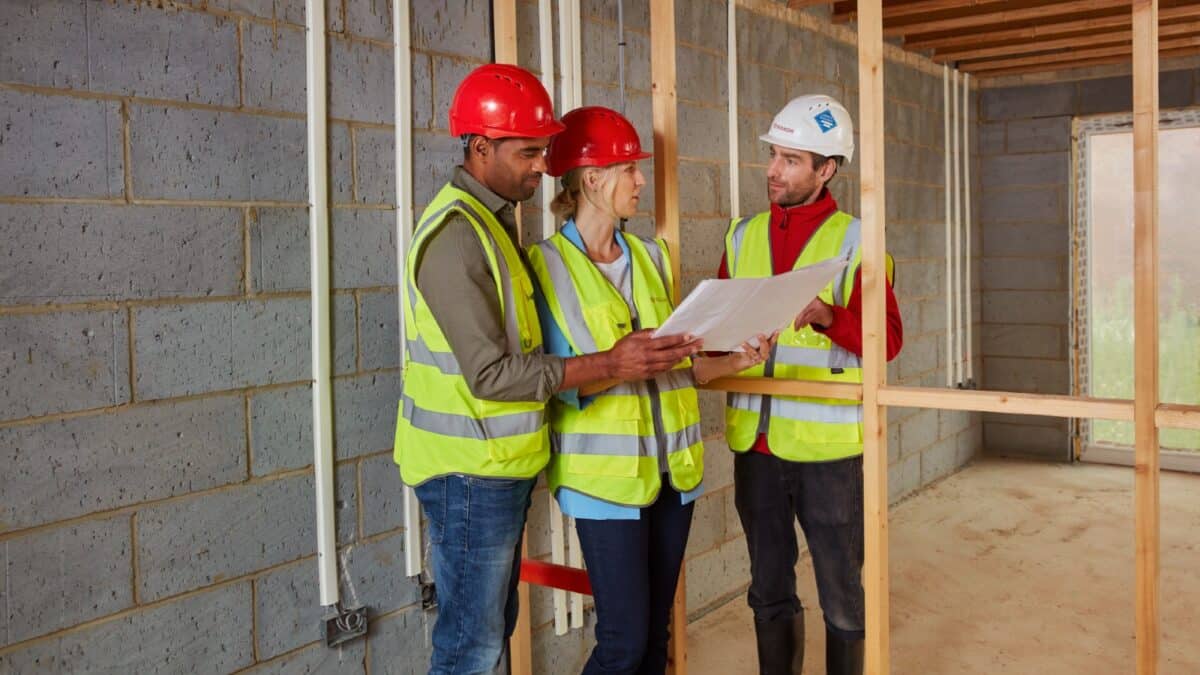FTSE 100 housebuilder Barratt Developments (LSE: BDEV) has had a rough time of it in the past few years.
Covid, the cost-of-living crisis, and mortgage rates at 16-year highs hit the UK housing market hard.
However, the market may now be at a crucial turning point, in my view. Interest rates have started to come down and the government aims to build 1.5m new homes over five years.
MADE in Britain
In this vein, 9 September saw the launch of the MADE Partnership between Barratt Developments, Lloyds, and Homes England. The latter is the government body responsible for housebuilding and regeneration across the country.
This is a long-term venture to develop multiple large-scale, residential-led developments from 1,000-10,000 homes.
Initially it is backed by combined equity funding of up to £150m provided equally by the partners.
This is a core government-back project to redress the huge housing shortage in the UK. According to the independent think tank Centre for Cities, the UK has a 4.3m housing deficit compared to the European average.
Consequently, I think there will be a lot more funding available for this initiative over time.
How did the latest results look?
Full-year 2024 results saw adjusted gross profit fall 39% year on year to £689m. This reflected lower home completions and reduced average selling prices. In fact, total home completions dropped by 18.6% to 14,004.
Adjusted profit before tax dropped 56.5%, to £385m. However, this was better than analysts’ expectations of £365m.
Additionally positive in my view is that the firm has sold 42% of its private wholly-owned home completions for this year. It expects average sales outlet numbers in 2025-26 to be ahead of the 2024 numbers.
Growth outlook
Consensus analysts’ estimates are that Barratt Developments’ earnings will grow a stunning 45.9% every year to end-2027. Earnings are revenue (the total money a business receives) after expenses and tax have been deducted.
The main risk for the stock is slippage in the government’s plans to build 300,000 new home each year.
According to industry figures, the average yearly number of new homes built over the previous 10 years was 178,228. The highest in that period was 232,820 in 2021-22.
Boosting shareholder rewards?
Rising earnings over time power increases in share price and dividends.
Barratt Developments’ shares have lost 13% since their 20 December 12-month traded high. Just before Covid began to surge in the UK in March 2020, they were trading about 43% higher — at around £8.88.
A discounted cash flow (DCF) analysis using other analysts’ figures and my own now shows the shares to be 40% undervalued at £5.13. This implies a fair value for the stock of £8.55, although it may go lower or higher than that.
Expectations are also for the dividend to rise over that period, from 3.2% now to 5.2% by end-2027.
Will I buy it?
I am focused on shares that already pay a very high yield, so this stock is not for me currently.
However, if I were looking for a good growth stock prospect, I would put these shares near the top of my watchlist.
To move them from there to a Buy would require more evidence of the government’s ongoing commitment to meeting its housebuilding targets.
This post was originally published on Motley Fool




